Existing User Log In
New User Registration
Register for a free account to gain full access to the VGChartz Network and join our thriving community.



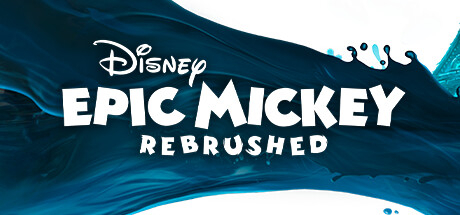

America - Front
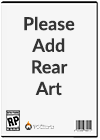

America - Back

Purple Lamp
Platform
 (Add Date)
(Add Date) (Add Date)
(Add Date) (Add Date)
(Add Date)
| Owners: | 0 |
| Favorite: | 0 |
| Tracked: | 0 |
| Wishlist: | 0 |
| Now Playing: | 0 |
Reviewer's Note: this review is dedicated to the memory of my cat Oswald. Ozzie, you are my heart.
Perhaps no game is more deserving of a remake than Epic Mickey. The 2010 Wii exclusive was designed, after all, to highlight lost and forgotten Disney characters, to make sure no toon, however niche, was left behind. What better way to honor such a game than to remake it, introduce it to a new generation of fans, and ensure it’s remembered for years to come? Enter Disney Epic Mickey: Rebrushed, a celebration and refinement of the original.
Developed by Purple Lamp and published by THQ Nordic, Rebrushed retains much of what made Epic Mickey so successful at launch in 2010. That includes its affecting, nostalgic, interactive story. It all starts when Mickey Mouse sneaks into the workshop of the wizard Yen Sid and spills a bottle of paint thinner into his latest creation, a miniature world filled with forgotten things. Years later, a monster made of paint and thinner attacks Mickey and drags him into the miniature world, which has become a wasteland. Armed with a magical paintbrush and guided by a helpful gremlin, Mickey traverses the decayed world looking for a way home.
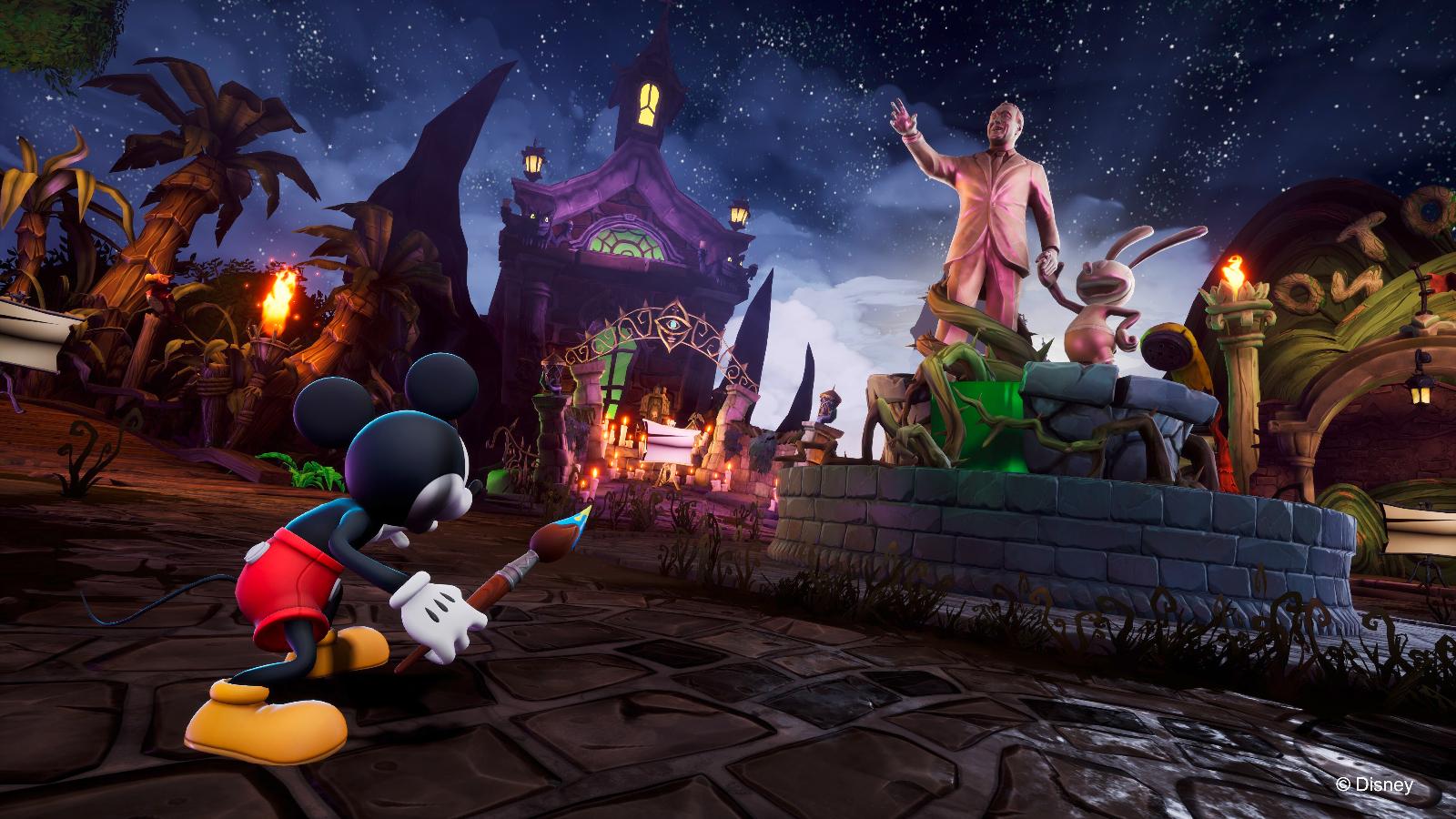
If you’re a Disney fan, the story in Rebrushed is a dream come true. Not only does it star the iconic Mickey Mouse, but it focuses on marginalized characters of the past, including Horace Horsecollar, Clarabelle Cow, and, of course, Oswald the Lucky Rabbit. Oswald, an early Walt Disney creation who, in hindsight, was a sort of proto-Mickey Mouse, is by far the most interesting, complex character in the game. He's the leader of the Cartoon Wasteland and has a chip on his shoulder the size of the Matterhorn. As the first big Disney creation to be relegated to obscurity, he's understandably a bit resentful. And he's not shy about letting Mickey know he considers him personally responsible. "For years, I've looked at this mountain of your stuff, wondering why YOU got all the success I deserved," says Oswald.
Even if you’re indifferent to all things Disney, the Rebrushed narrative is worthy of your time. It has a lot of meaningful things to say about loss, sacrifice, identity, heroism, and friendship. The themes and character moments in the game transcend any pop culture references, in the end. What's more, the game's story, to a certain degree, is yours to tell. Throughout the campaign, you'll encounter dozens of requests that often culminate in some kind of moral decision. Which quests you take, which quests you don't take, and how you resolve each dilemma will affect how the citizens of Wasteland view you, which items you receive, and which ending cut-scenes you see.
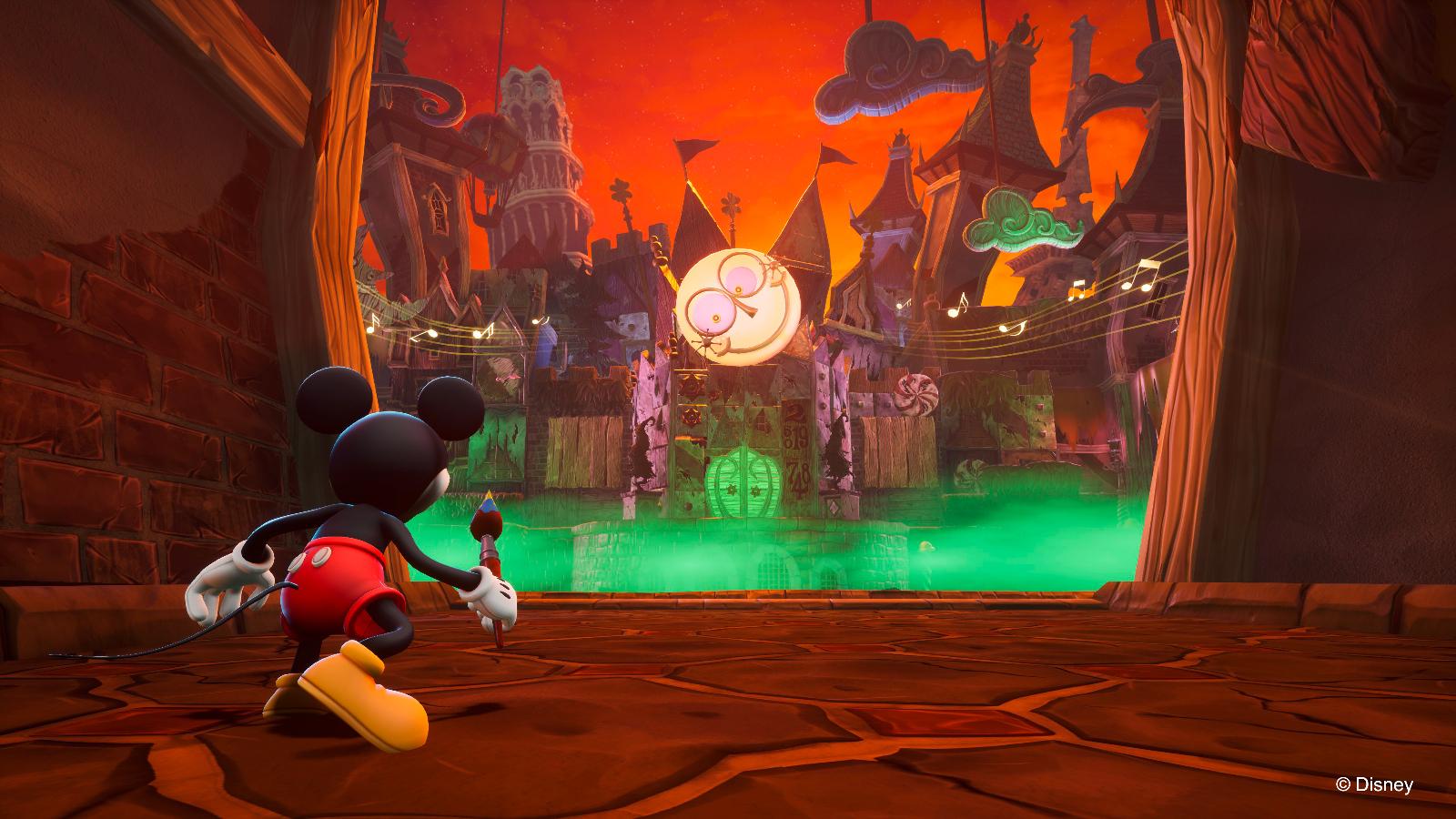
This dynamic is perhaps the most enticing part of Rebrushed, and Epic Mickey before it. Originally directed by Warren Spector, famous for creating games where player decisions have real, far-reaching consequences, Rebrushed leverages a simple morality system that immerses you in the world of Wasteland and makes you feel as if you're shaping its future. Could it be more consequential? Absolutely. Looking back, it's clear that Spector and his company Junction Point Studios pulled their punches; Deus Ex, this is not. Still, it's an engrossing framework. Not only that, but it grants the game significant replay value — helpful, since an initial run lasts only about 12 hours.
The moral decision-making piece is but one component of Rebrushed. For the most part, the game is concerned about fulfilling the expectations of a 3D action-platformer. And it's here where the remake accomplishes its most important work. Back in 2010, fans enjoyed the dark storyline and replayability of Epic Mickey, but often found themselves fighting with its controls, specifically its clunky camera controls. You moved Mickey with the analog stick on the nunchuk, aimed his paintbrush with the Wiimote cursor, sprayed paint and thinner with the B and Z buttons respectively, and did your best to adjust the semi-locked camera on the fly with the d-pad. It was a bit of a headache.
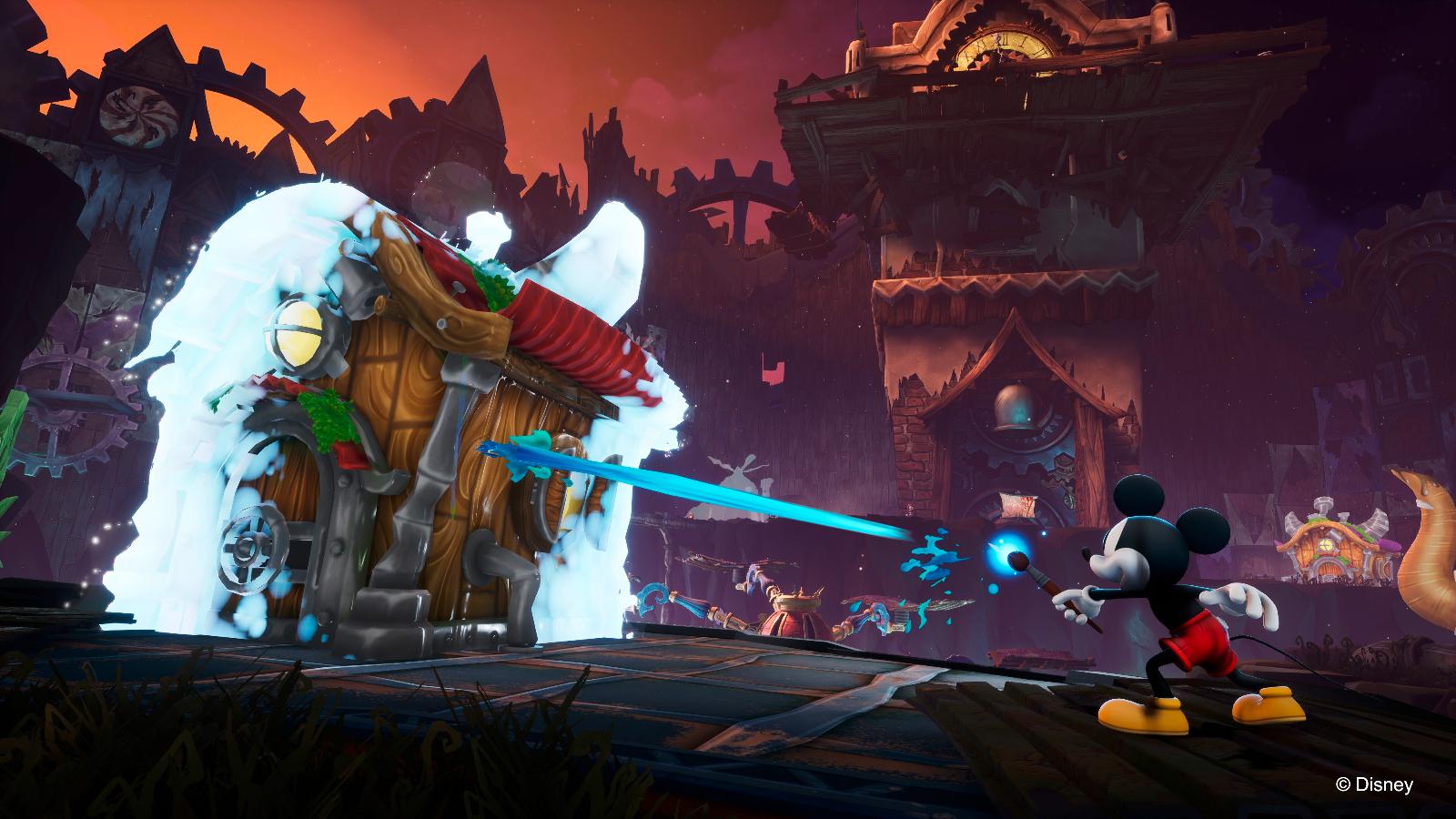
Gratefully, Purple Lamp has completely overhauled this system, introducing a dual analog setup that works flawlessly. Now, you move with the left stick and aim with the right stick, and the aiming reticle remains docked in the center of the screen instead of moving along with the Wiimote. Don't worry IR pointer fans: you can use gyro controls on Switch to get your motion control fix.
Not only has the developer fixed the most glaring issue from the original, but it has also expanded upon Mickey's moveset. He can now dash, run, and perform a ground pound, which enhances both movement and combat. He can also spin with the Y button instead of relying on a flick of the Wiimote. Overall, the remake feels like a modern 3D platformer.
It also looks the part of a modern 3D platformer, thanks to significant visual enhancements. The biggest change involves lighting. The original Epic Mickey was either exceptionally bright or impossibly dark, while the remake is far more nuanced, deploying subtle shading to bring out lots of lovely details. There are also major upgrades to texture and resolution, thanks to the power of Unreal Engine.
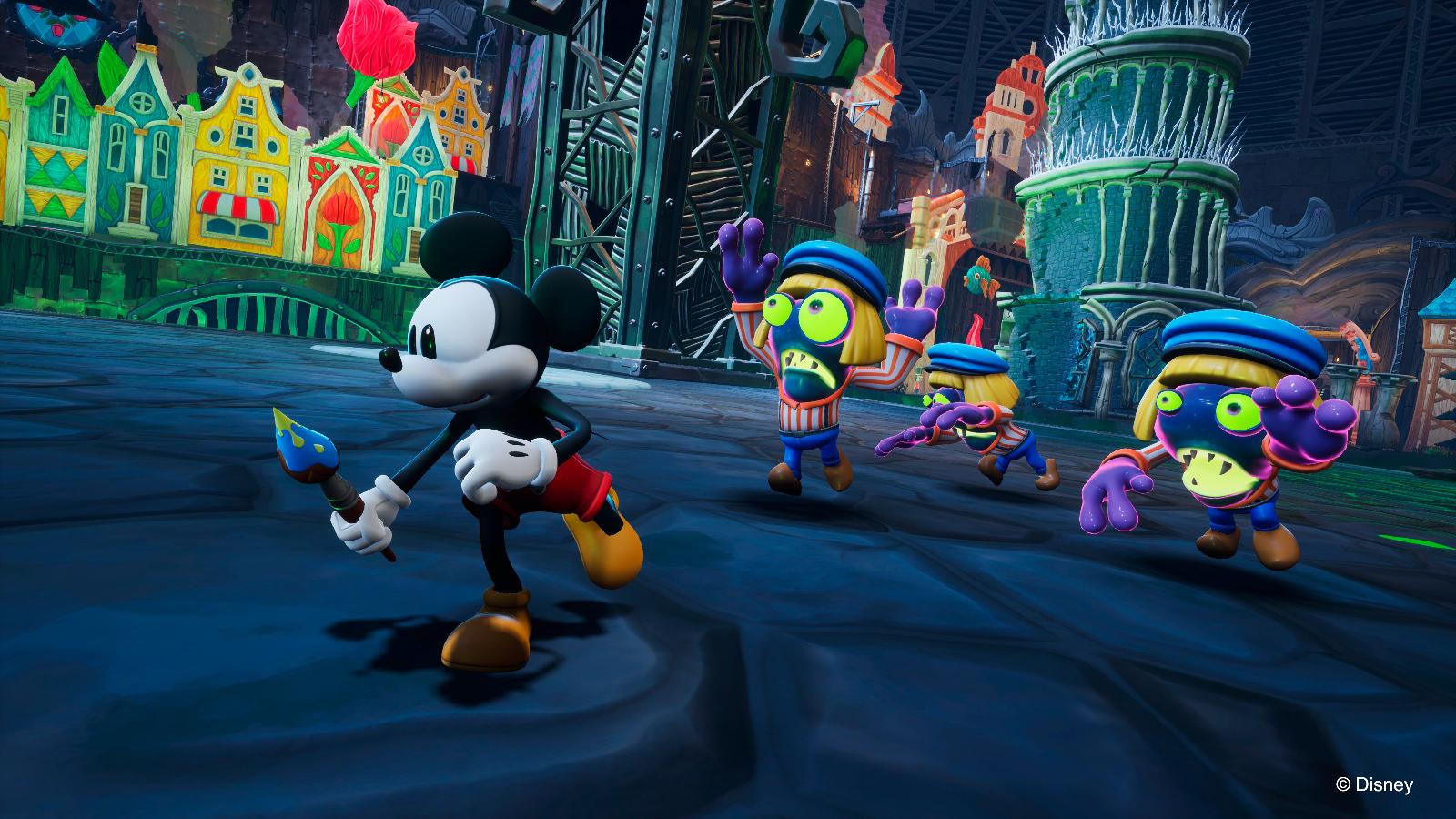
While Rebrushed outpaces Epic Mickey on a technical level, it's not a total victory in terms of art direction. In general, the remake produces a more believable, detailed world, but there are instances where the starkness of the original helped set the proper atmosphere. For example, the Wii version of Skull Island, with its glowing green tanks and stormy yellowish sky, looks better than the new version, strictly from an artistic point of view. It's a testament to the extraordinary production design of the original.
Although Purple Lamp has delivered a major visual upgrade with Rebrushed, it hasn't ironed out every technical component, at least on Switch. For the most part, the game runs fine, hitting its 30 FPS benchmark. There are dips and hiccups now and then, when the onscreen action is especially busy, but overall things are fairly stable. The bigger issue is loading times. It can take 30-40 seconds to load a new area. Mean Street, the main hub, is particularly bad. It routinely takes 80 seconds to access that specific zone.
As for the audio side of the equation, well, it's complicated. On the plus side, Purple Lamp wisely chose to leave the original music, composed by James Dooley, untouched. The soundtrack remains a sweeping, nostalgic, slightly-sinister work of art. On the minus side, the developer unwisely chose not to add any new voice performances. The Wii game, ostensibly due to a limited budget, had very limited voiceover work, relying instead on character gestures and sounds. Regrettably, nothing has changed on that front. Rebrushed would be even better with new voiced lines, from the likes of Tony Anselmo, Bill Farmer, Chris Diamantopoulos, and Tress MacNeille.
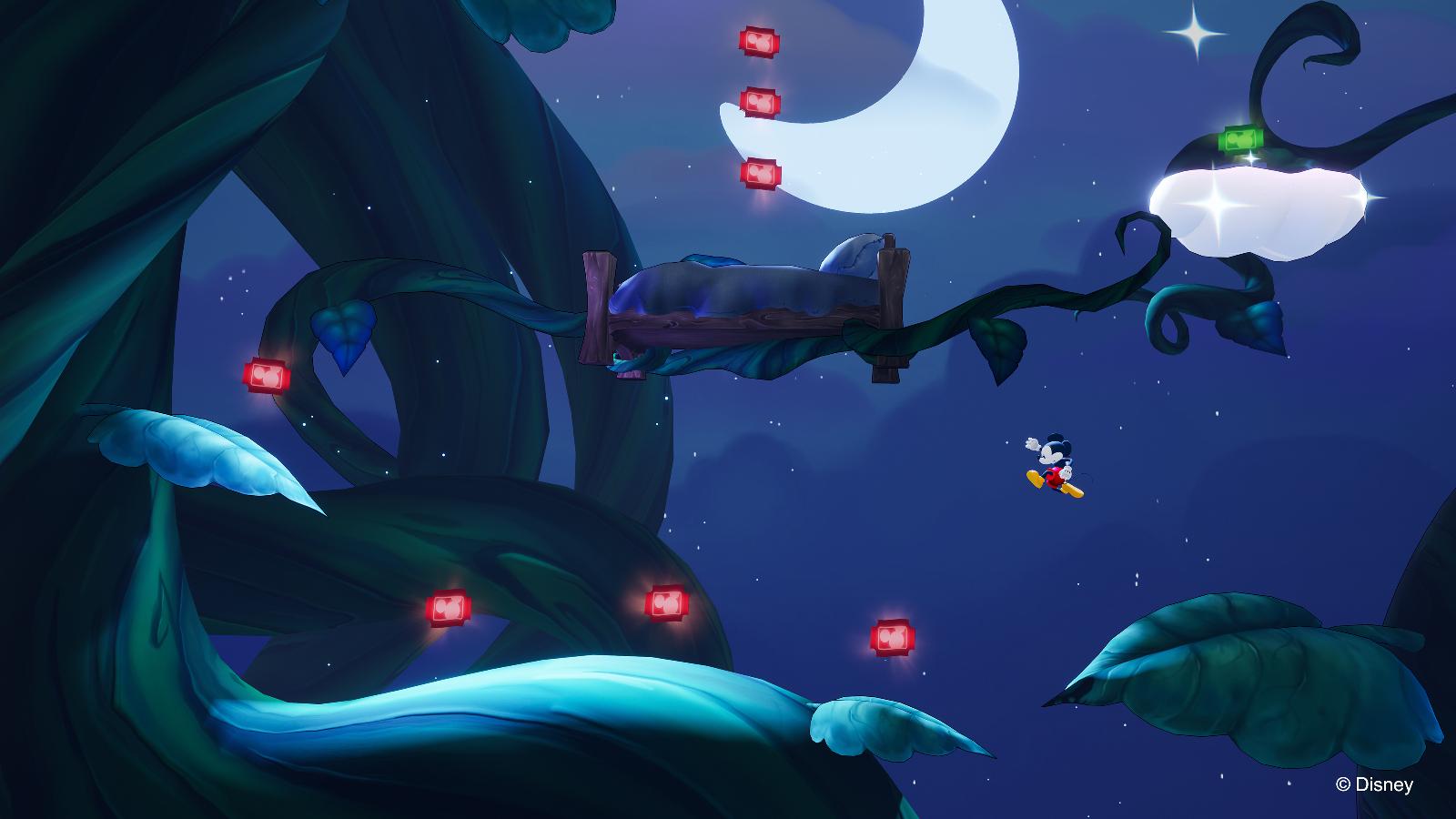
Purple Lamp might have missed the mark with voice acting, but it has delivered plenty in terms of quality-of-life adjustments. For example, if Mickey is about to leave an area he won't be able to access again, his gremlin companion Gus will now warn him about unfinished quests. In addition, the game's 2D platforming projector screen sections, which have been expanded and overhauled, can be skipped once completed — for a price. Speaking of those projector screen segments, you can now access all of them from the cinema on Mean Street, allowing you to retrieve any missed collectibles without backtracking.
Thanks to Purple Lamp and THQ Nordic, Epic Mickey gets another opportunity to shine. Even better, it gets a chance to expand upon what worked in 2010 and fix what didn't. Thanks to refined camera controls, additional moves, quality-of-life enhancements, expanded 2D platforming sections, and the retention of almost everything that made the Wii version special, Disney Epic Mickey: Rebrushed is the best way to experience Mickey's adventure in Wasteland. There's still room for improvement — particularly with the morality system and voice acting — and there are a handful of performance issues in the Switch version, but overall this remake is a beautiful tribute to an epic game.









